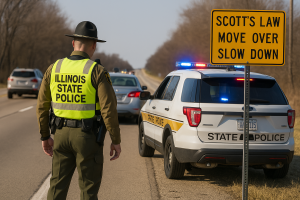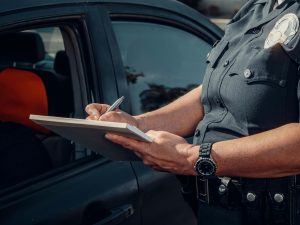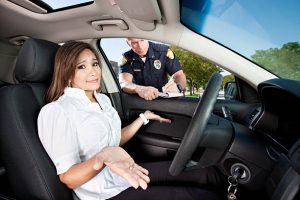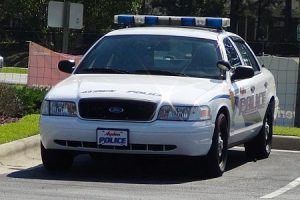 If you’ve recently received a Scott’s Law ticket in Illinois, you’re probably worried about what happens next. You may be asking yourself questions like:
If you’ve recently received a Scott’s Law ticket in Illinois, you’re probably worried about what happens next. You may be asking yourself questions like:
- “How serious is a Scott’s Law violation?”
- “Will I lose my license?”
 If you’ve recently received a Scott’s Law ticket in Illinois, you’re probably worried about what happens next. You may be asking yourself questions like:
If you’ve recently received a Scott’s Law ticket in Illinois, you’re probably worried about what happens next. You may be asking yourself questions like:
 If you have received a traffic ticket in Illinois, you may be concerned about how it will affect your driving record and whether it will lead to a suspension of your driver’s license. The Illinois Secretary of State operates a point system to track traffic violations, and accumulating too many points can have serious consequences. As an experienced Illinois criminal defense and traffic attorney, I have helped countless clients navigate the Illinois point system, fight traffic tickets, and protect their driving privileges. Understanding how this system works is crucial if you are facing a traffic violation and want to minimize the impact on your record.
If you have received a traffic ticket in Illinois, you may be concerned about how it will affect your driving record and whether it will lead to a suspension of your driver’s license. The Illinois Secretary of State operates a point system to track traffic violations, and accumulating too many points can have serious consequences. As an experienced Illinois criminal defense and traffic attorney, I have helped countless clients navigate the Illinois point system, fight traffic tickets, and protect their driving privileges. Understanding how this system works is crucial if you are facing a traffic violation and want to minimize the impact on your record.
What Is the Illinois Secretary of State Point System?
The Illinois Secretary of State’s point system is a method of assigning demerit points to drivers who are convicted of traffic violations. When you receive a traffic citation and either pay the ticket or are found guilty in court, points are added to your driving record. The number of points assigned depends on the severity of the violation. If you accumulate too many points, your driver’s license may be suspended or revoked.

Over the holiday weekend, the Schaumburg police conducted their annual “Drive Sober or Get Pulled Over” enforcement campaign. The enforcement campaign ran from December 16 to January 2. The annual campaign is run by the Illinois Department of Transportation and is managed funded by the National Highway Traffic Safety Association, which provides the funding for the campaign. Most of the local police departments in the area participated in the campaign. The funds allowed the Schaumburg Police to add four additional units to be dedicated to enforcing the traffic laws during the campaign.
The Schaumburg Police released their numbers last week. The vast majority of citations issued were for Distracted Driving. That is not surprising. I have seen a drastic increase in the number of tickets issued for Distracted Driving in recent years.. Distracted Driving is what is commonly known as “texting and driving”. However, there’s much more to distracted driving than just texting. Authorities have been struggling with trying to curb the use of cell phones while driving. Numerous studies throughout the years have shown that using a cell phone while driving is more dangerous than drinking and driving. When cell phones started becoming popular, the state legislature made it illegal to text while driving. That’s why any new laws or rules having to do with the use of cell phones by drivers are commonly associated with texting. After the initial texting and driving laws were passed, authorities realized that much more needed to be done. The cell phone rules were tightened, and today, the rules against using a cell phone while driving are much more strict than ever. It is against the law to use a cell phone when driving as long as the phone is completely hands free. As a general rule, touching your cell phone while you are driving can land you a date in Traffic Court. There are some very limited exceptions to the general rule, but officers have become increasingly diligent and aggressive when it comes to enforcing the cell phone laws. On any given day in Traffic Court, it is not uncommon to see that a large percentage of citations issued are for Distracted Driving. When the first cell phone laws were passed, the punishment for getting caught was a fine that was not reported to the Secretary of State so it did not affect your license. The current laws have made a ticket for Distracted Driving to have the same effect on your license as any other traffic tickets. Distracted Driving tickets are reported to the Secretary of State and these tickets can count points against your license, just like any other ticket.
Only one speeding ticket was issued by the Schaumburg Police during the campaign and 1 DUI occurred during the campaign over the holiday. The only DUI arrest was For Driving Under the Influence of Drugs. When Illinois legalized the recreational use of Marijuana, authorities were concerned that it would cause a big jump in the number of people charged with a DUI for Driving Under the Influence of Cannabis. That did not materialize. While it became much more common to see DUI cases involving the use of Marijuana, I have not noticed a big increase in such cases. It is not very common to see DUI cases involving marijuana.

Distracted Driving is defined as doing anything that diverts a driver’s attention away from driving their vehicle. There are four types of Driver Distraction. They are as follows:
 Illinois does not allow motorists to use their cell phone for talking, texting, or using any other means of electronic communication while they are operating their motor vehicle on a public road. The only way you can use your cell phone while driving is through Bluetooth technology, provided that you are 19 and over. In the last couple of years, tickets issued for using cell phones while driving have become common. The laws regarding use of a cell phone while driving have undergone several changes throughout the years. As a result, many motorists are not fully aware of what the rules are when it comes to using their cell phones while driving. Most of the clients who I meet for cases like this frequently tell me that they did not know how restrictive the cell phone usage laws are in Illinois. I want to take this opportunity to explain the cell phone Distracted Driving law in Illinois so that you know what is allowed and what is not allowed in Illinois.
Illinois does not allow motorists to use their cell phone for talking, texting, or using any other means of electronic communication while they are operating their motor vehicle on a public road. The only way you can use your cell phone while driving is through Bluetooth technology, provided that you are 19 and over. In the last couple of years, tickets issued for using cell phones while driving have become common. The laws regarding use of a cell phone while driving have undergone several changes throughout the years. As a result, many motorists are not fully aware of what the rules are when it comes to using their cell phones while driving. Most of the clients who I meet for cases like this frequently tell me that they did not know how restrictive the cell phone usage laws are in Illinois. I want to take this opportunity to explain the cell phone Distracted Driving law in Illinois so that you know what is allowed and what is not allowed in Illinois.
In 2019, the Illinois legislature changed the Illinois Distracted Driving law by imposing stricter limits on the use of cell phones in cars, and making a ticket for using your cell phone while driving a moving violation in Illinois. Before 2019, a ticket for using your cell phone in your car was punishable by a fine only and was not reported to the Illinois Secretary of State so a ticket for using your cell phone would not affect your license. After 2019, a ticket for using your cell phone while driving is considered a moving violation which will be reported to the Secretary of State and will go on your driving record and affect the status of your driver’s license. A ticket for using your cell phone will never be removed from your driving record, regardless of what happens with the ticket.
What Is Not Allowed
 Lately, many of the phone calls I receive start off with clients telling me that they received a “speeding ticket” and asking whether they can really go to jail for their “speeding ticket.” I ask them how fast they were going, and if they were going 26 miles per hour, or more, over the posted speed limit, I have to explain what they are facing. I start off by explaining that what they received is not a speeding ticket. At least it’s not what most people commonly considered to be a speeding ticket. It’s called Aggravated Speeding in llinois. Speeding 26-miles per hour over the posted speed limit is a crime in Illinois. It’s called Aggravated Speeding and can be found at If you did not know this, don’t feel bad. Most people do not realize that speeding 26-miles per hour over the posted speed limit is a crime in Illinois until it happens to them. Sometimes, lawyers don’t even know that driving 26-miles per hour over the posted speed limit is a crime in Illinois (more on that later.) Illinois has made speeding 26-miles per hour over the posted speed limit a crime that carries potential serious consequences. Just like any other crime in Illinois, driving 26-miles per hour over the posted speed limit carries a potential jail sentence that all Illinois driver’s should be aware of. Let me explain.
Lately, many of the phone calls I receive start off with clients telling me that they received a “speeding ticket” and asking whether they can really go to jail for their “speeding ticket.” I ask them how fast they were going, and if they were going 26 miles per hour, or more, over the posted speed limit, I have to explain what they are facing. I start off by explaining that what they received is not a speeding ticket. At least it’s not what most people commonly considered to be a speeding ticket. It’s called Aggravated Speeding in llinois. Speeding 26-miles per hour over the posted speed limit is a crime in Illinois. It’s called Aggravated Speeding and can be found at If you did not know this, don’t feel bad. Most people do not realize that speeding 26-miles per hour over the posted speed limit is a crime in Illinois until it happens to them. Sometimes, lawyers don’t even know that driving 26-miles per hour over the posted speed limit is a crime in Illinois (more on that later.) Illinois has made speeding 26-miles per hour over the posted speed limit a crime that carries potential serious consequences. Just like any other crime in Illinois, driving 26-miles per hour over the posted speed limit carries a potential jail sentence that all Illinois driver’s should be aware of. Let me explain.
Cases involving drivers caught driving 26-miles per hour over the posted speed limit are commonly called Aggravated or Excessive Speeding cases. Under 625 ILCS 5/11-601.5(a), if you are caught driving between 26 to 34 miles per hour over the posted speed limit, you can be charged with a Class B Misdemeanor. A Class B Misdemeanor carries up to 180 days in county jail and a maximum fine of $1,500. Under 625 ILCS 5/601.5(b), if you are caught driving 35-miles per hour, or more, over the posted speed limit, you can be charged with a Class A Misdemeanor. A Class A Misdemeanor carries up to 1 year in county jail and a maximum fine of $2,500.
Just like any other criminal offense, you will need to have a lawyer represent you if you receive an Aggravated or Excessive Speeding charge. Believe it or not, there’s lawyers out there that do not realize that driving 26-miles per hour over the posted speed limit is a crime until they go to Court and find out that what their client is facing is not a simple speeding ticket. Unless the lawyer commonly handles Aggravated or Excessive speeding cases, they will not know what to do when they get to Court. A few weeks ago I was at a local courthouse waiting to talk to the prosecutor about my client’s Aggravated Speeding charge when I started talking to the lawyer who was in front of me in line. I had never seen this lawyer before in Court. The lawyer told me that she was taking care of the speeding ticket for a family friend and as I was talking to her about the case, she told me that her client was going 42-miles per hour over the posted speed limit and asked me if she could just get Court Supervision for her client for the speeding ticket. I realized that the attorney did not understand that her client was being charged with a Class A Misdemeanor that carried a possible criminal conviction and a potential jail sentence of up to 1-year and a maximum fine of $2,500. I had explain all of this to the lawyer and she got a continuance for her client and sent the client to me to represent her for the Class A Excessive Speeding Charge. I was able to get the prosecutor to drop the charge down to a petty offense after the client performed some community service hours. The client had to pay a small fine and the court costs, and take a Driver Improvement Course.

As of July 1, 2019, Illinois has become a “Hands-Free Zone”. In 2010, texting and driving was outlawed in Illinois. In 2014, using your cell phone without a hands-free device was outlawed. But apparently, that was not enough. In 2018 the Illinois Legislature enacted a new Distracted Driving law that substantially increases the penalties for using a cell phone while operating a vehicle on Illinois roads which could lead to the suspension of your Illinois driver’s license.
Distracted Driving is a broad definition which covers more than just the use of a cell phone or an electronic device in your vehicle. You can be cited for Distracted Driving for applying makeup while driving, or looking at a printed map while driving your vehicle. However, the overwhelming majority of Distracted Driving tickets involve the use of a cell phone while driving.
The Old Law
 Recently, I was hired to represent several clients who were charged with Failure to Yield to an Emergency Vehicle. During the course of representing these clients, I realized that many Illinois motorists do not fully understand the law when it comes to passing a stationary emergency vehicle that is stopped on the side of the road. I want to take this opportunity to discuss this law and what it involves. If you do not understand the law, and what it requires when you are passing an emergency vehicle that is stopped on the side of the road, you could find yourself with a very serious traffic ticket that could cause you to lose your license and cost you a lot of money.
Recently, I was hired to represent several clients who were charged with Failure to Yield to an Emergency Vehicle. During the course of representing these clients, I realized that many Illinois motorists do not fully understand the law when it comes to passing a stationary emergency vehicle that is stopped on the side of the road. I want to take this opportunity to discuss this law and what it involves. If you do not understand the law, and what it requires when you are passing an emergency vehicle that is stopped on the side of the road, you could find yourself with a very serious traffic ticket that could cause you to lose your license and cost you a lot of money.
What Is The Law and Why is it So Serious?
The Failure to Yield to an Emergency Vehicle statute was enacted by the Illinois Legislature after the September 2000 death of Lieutenant Scott Gillen of the Chicago Fire Department after an intoxicated motorist sped through an accident scene and pinned him against a fire truck. In response, the Illinois Legislature passed “Scott’s Law” to protect police and fire officials who are performing their responsibilities on the side of the road. Tickets involving the Failure to Yield to an Emergency Vehicle are commonly referred to as “Scott’s Law” by police, judges, and lawyers.
 Early this morning I received a phone call from a prospective client who wanted to talk to me about a “speeding ticket” they received last night for going 30 miles per hour over the posted speeding ticket on a local highway. I receive such phone calls from prospective clients almost every day. Very few people calling me for cases like this really understand what they are facing. I have written about cases like this because I handle many cases involving Aggravated or Excessive speeding. These phone calls usually start off with the prospective client wanting to talk about a “speeding ticket” they recently received. Once I find out that the “speeding ticket” is for 26 miles per hour, or more, over the posted speed limit, I usually have to explain to the prospective clients that what they are facing is not a simple speeding ticket. If you are cited for going 26 miles an hour, or more, over the posted speed limit, what you are facing is an actual criminal charge of Aggravated or Excessive Speding. Going 26 miles or more, over the posted speed limit is an actual crime in Illinois that carries a potential jail sentence. Let me explain.
Early this morning I received a phone call from a prospective client who wanted to talk to me about a “speeding ticket” they received last night for going 30 miles per hour over the posted speeding ticket on a local highway. I receive such phone calls from prospective clients almost every day. Very few people calling me for cases like this really understand what they are facing. I have written about cases like this because I handle many cases involving Aggravated or Excessive speeding. These phone calls usually start off with the prospective client wanting to talk about a “speeding ticket” they recently received. Once I find out that the “speeding ticket” is for 26 miles per hour, or more, over the posted speed limit, I usually have to explain to the prospective clients that what they are facing is not a simple speeding ticket. If you are cited for going 26 miles an hour, or more, over the posted speed limit, what you are facing is an actual criminal charge of Aggravated or Excessive Speding. Going 26 miles or more, over the posted speed limit is an actual crime in Illinois that carries a potential jail sentence. Let me explain.
If you are cited for going 26 to 34 miles per hour over the posted speed limit, you will be charged with a Class B Misdemeanor. A Class B Misdemeanor carries up to 6-months in County Jail and a maximum fine of $1,500. If you are cited for going 35 miles per hour, or more, over the posted speed limit, you will be facing a Class A Misdemeanor. A Class A Misdemeanor carries a maximum fine of $2,500 and up to one-year in County Jail. In addition to the serious criminal criminal penalties associated with these crimes, if you are convicted of a Class A or a Class B Misdemeanor for Excessive Speeding, you will have a criminal conviction on your criminal record that will appear on a routine background search. So, if you apply for a job and are asked whether you have ever been convicted of a crime, you will have to answer “yes”.
Another question I get from prospective clients who call me about cases like this is whether I think they need a lawyer. Because what they are facing is not a simple speed ticket and is an actual crime, when they go to Court they will find out that they will need a lawyer. Many times, the first question asked by the Judge in cases like this is whether you have a lawyer. If you respond by telling the Judge that you don’t have a lawyer, the Judge will tell you that because what you are facing is a crime, you must have a lawyer. The next question will be whether you can afford to hire your own lawyer. If the Judge determines that you are unable to afford your own lawyer, the Judge may appoint a Public Defender to represent you. However, if the Judge determines that you are working and can afford to hire your own lawyer, the Judge will continue your case and tell you to come back to Court with your own lawyer.
 I frequently receive phone calls from clients who have received a speeding ticket for driving at a high rate of speed. While speaking with these clients, it is not uncommon for me to find out that they were driving at such a high rate of speed that I need to explain to them that what they are charged with is not your typical, run-of-the-mill, speeding ticket. I end up having to explain to them that what they are facing is a criminal charge known as Aggravated or Excessive Speeding that carries a possible jail sentence in County Jail. Let me explain how an Aggravated or Excessive Speeding ticket in Illinois can land you in jail and lead to a criminal conviction that will appear on your record in a routine background search.
I frequently receive phone calls from clients who have received a speeding ticket for driving at a high rate of speed. While speaking with these clients, it is not uncommon for me to find out that they were driving at such a high rate of speed that I need to explain to them that what they are charged with is not your typical, run-of-the-mill, speeding ticket. I end up having to explain to them that what they are facing is a criminal charge known as Aggravated or Excessive Speeding that carries a possible jail sentence in County Jail. Let me explain how an Aggravated or Excessive Speeding ticket in Illinois can land you in jail and lead to a criminal conviction that will appear on your record in a routine background search.
Most speeding tickets are considered a petty offense. The typical speeding ticket carries a fine only. This means that you cannot go to jail for your typical speeding ticket. Basically, Illinois Law provides that you cannot drive at a speed that is “greater than is reasonable and proper with regards to traffic conditions and the use of the highway, or endangers the safety of any person or property.” This basically means that you must drive at a safe speed. What is considered a safe speed depends on the conditions at the time. In other words, what is considered a safe speed may vary depending on the time of day and the weather conditions. However, if you are caught driving above the absolute speed limit, you may receive a ticket for speeding regardless of the time of day and conditions. If the speed limit is 55 and you are driving faster than the speed limit, you may receive a ticket regardless of the weather conditions or the time of day. The defense that you were driving with “the flow of traffic” will not work in Court. If the speed limit is 55 and you are driving 55 miles an hour in a blizzard while all the other cars on the roadway are driving at 30 miles an hour, you may receive a ticket for speeding even though you did not exceed the posted speed limit. As you can tell, being found guilty of speeding above the posted speed limit is much easier for the prosecutor to prove in court than it is for them to prove that you were driving greater than what was reasonable and proper with regard to traffic conditions and the use of the highway.
The absolute speed limit is posted on signs. In general, the absolute speed limits on Illinois roads are as follows, unless posted otherwise: